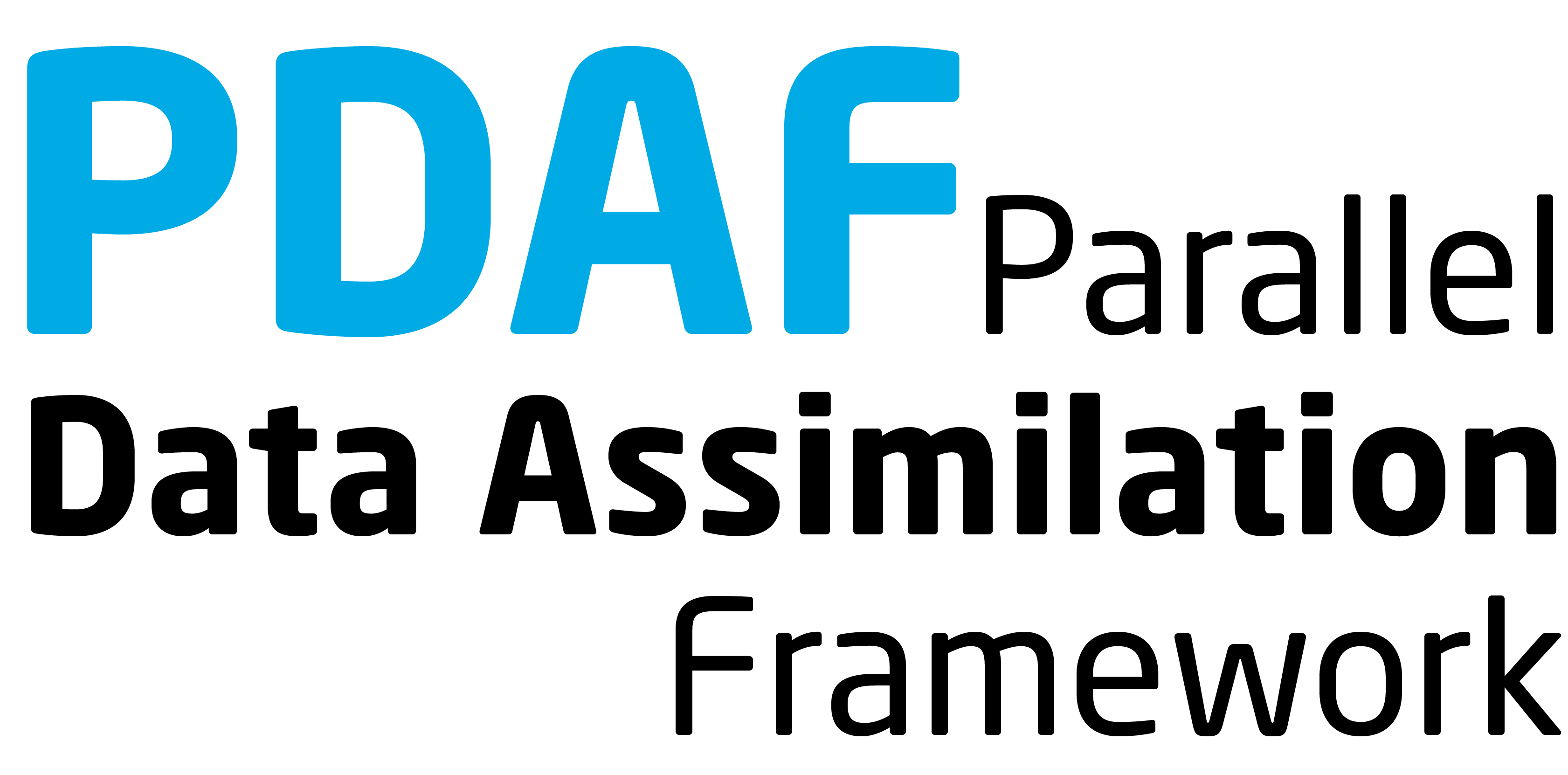FESOM
FESOM (Finite-Element/volumE Sea ice-Ocean Model) is a multi-resolution sea ice-ocean model that solves the equations of motion on unstructured meshes.
PDAF - the Parallel Data Assimilation Framework is one of the most widely used a software frameworks for data assimilation. PDAF provides support for ensemble modeling and fully implemented data assimilation methods to merge models and observational data which let models learn from observations.
Data assimilation is the science to combine observational data with numerical models taking into account the uncertainties of both. Data assimilation is applied to estimate model states, but also to estimate optimal process parameters in models, improve model formulations, and to assess the impact of observations. Data assimilation is typically used in Earth sciences, but it can be applied for any application where observations are available over time and where a numerical model simulating the system of interest over time is available.
The Parallel Data Assimilation Framework - PDAF - is one of the most widely used software frameworks for data assimilation. PDAF simplifies the implementation of the data assimilation system with existing numerical models of any scale. With this, users can obtain a data assimilation system with less work and can focus on applying data assimilation.
PDAF provides fully implemented, optimized, and parallelized data assimilation algorithms, in particular ensemble-based Kalman filters like LETKF and LESTKF, related smoothers, nonlinear filters, and 3-dimensional variational methods. PDAF allows users to easily test different assimilation algorithms and to assimilate different types of observations.
PDAF is optimized for the application with large-scale models that usually run on high-performance computers. It is also applicable for operational applications. Nonetheless, PDAF is also well suited for smaller models and even toy models, and is also used to teach data assimilation.
PDAF provides a standardized interface that separates the numerical model from the assimilation routines. This allows to perform the further development of the assimilation methods, observations, and the model independently. PDAF releases make new algorithmic developments readily available through the interface such that they can be immediately applied with existing implementations. The PDAF release package provides small models for easy testing of algorithmic developments and for teaching data assimilation.
PDAF's internal interface to the assimilation algorithms allows data assimilation researchers to add their own assimilation algorithms and make them available to PDAF's user community.
PDAF is a community open-source project. Its functionality will be further extended by input from research projects. In addition, users are welcome to contribute to the further enhancement of PDAF, e.g. by contributing additional assimilation methods or interface routines for different numerical models.

FESOM (Finite-Element/volumE Sea ice-Ocean Model) is a multi-resolution sea ice-ocean model that solves the equations of motion on unstructured meshes.
The Terrestrial Systems Modelling Platform (TSMP) is an open source framework implementing a scale-consistent, highly modular, massively parallel regional Earth system model. It represents transport and feedback processes of mass, energy and momentum across geo-ecosystem compartments and scales.